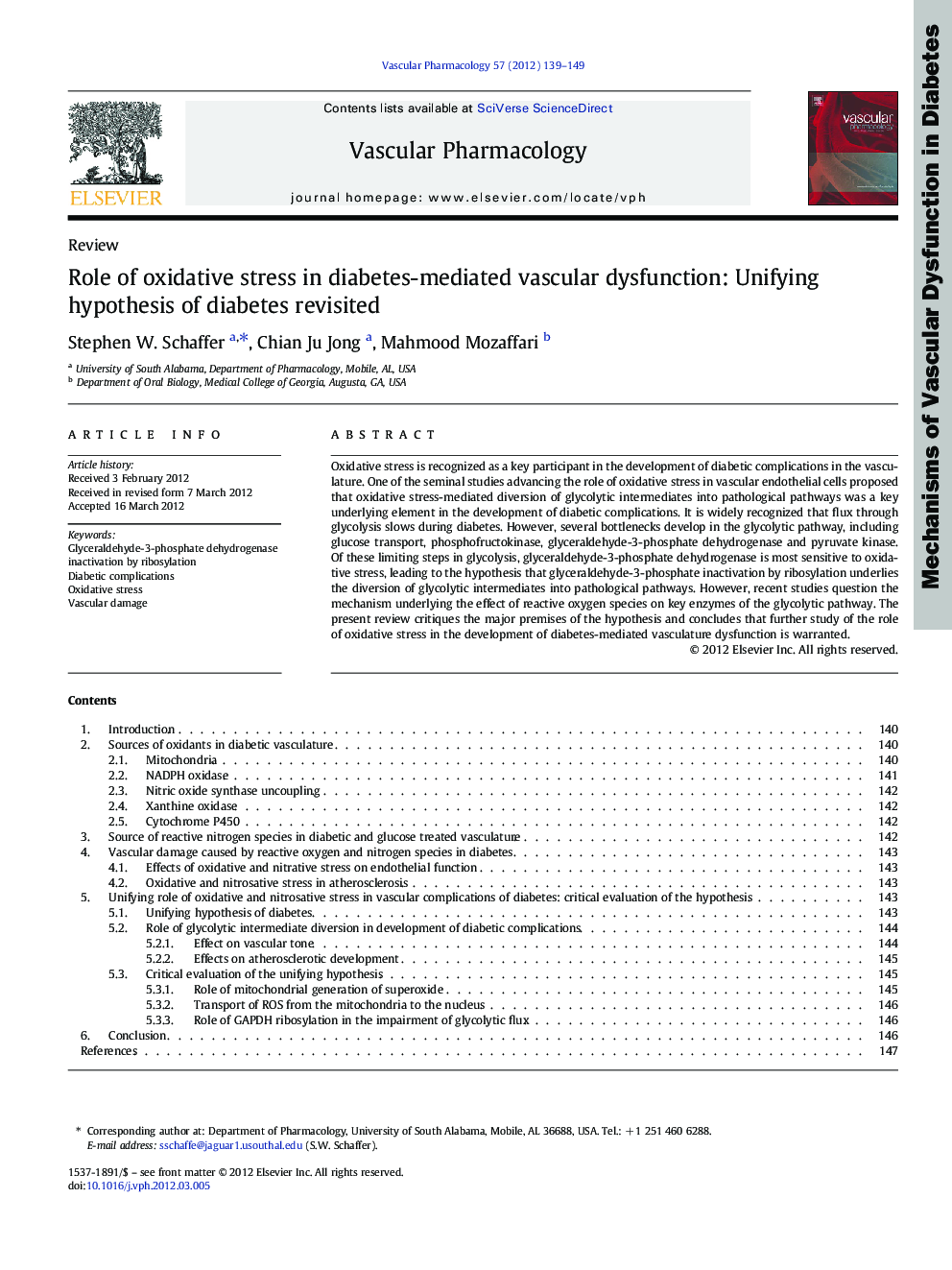| Article ID | Journal | Published Year | Pages | File Type |
|---|---|---|---|---|
| 2574334 | Vascular Pharmacology | 2012 | 11 Pages |
Oxidative stress is recognized as a key participant in the development of diabetic complications in the vasculature. One of the seminal studies advancing the role of oxidative stress in vascular endothelial cells proposed that oxidative stress-mediated diversion of glycolytic intermediates into pathological pathways was a key underlying element in the development of diabetic complications. It is widely recognized that flux through glycolysis slows during diabetes. However, several bottlenecks develop in the glycolytic pathway, including glucose transport, phosphofructokinase, glyceraldehyde-3-phosphate dehydrogenase and pyruvate kinase. Of these limiting steps in glycolysis, glyceraldehyde-3-phosphate dehydrogenase is most sensitive to oxidative stress, leading to the hypothesis that glyceraldehyde-3-phosphate inactivation by ribosylation underlies the diversion of glycolytic intermediates into pathological pathways. However, recent studies question the mechanism underlying the effect of reactive oxygen species on key enzymes of the glycolytic pathway. The present review critiques the major premises of the hypothesis and concludes that further study of the role of oxidative stress in the development of diabetes-mediated vasculature dysfunction is warranted.
Graphical abstractFigure optionsDownload full-size imageDownload high-quality image (185 K)Download as PowerPoint slide
